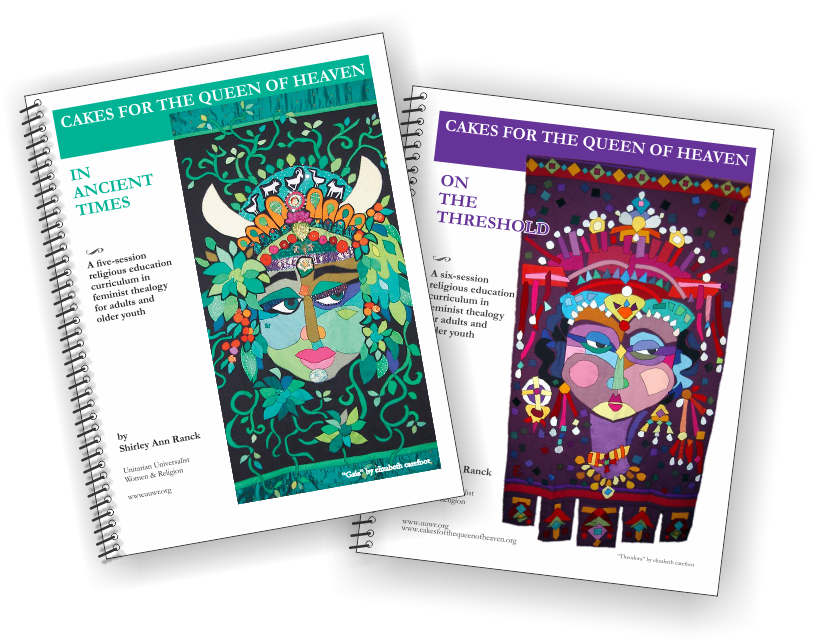Chalice Lighting: Light the chalice and say: Centuries ago the Hebrew prophet Amos posed a question that still haunts us today. He asked, “Can two walk together except they be agreed?”
Reflections: Allow up to five minutes for questions or comments that have come up since the previous session.
Introduction: Read or put into your own words the following: The multi-cultural imperative calls us to set aside other unexamined assumptions—that light is better than dark, that bull-dozing the sacred lands of indigenous people does not interfere with their freedom to practice their religion, that it is superstition to believe that the ancestors have become part of the earth, the water and the trees. What are we assuming here? That our culture, our religion, our values are the highest, the best that human beings have created. Our language in its use of light and dark is just one indication of the assumptions carved into our imaginations.
Many of the indigenous spiritual traditions around the world, although patriarchal in many ways, have retained strong elements of honoring woman and honoring the earth. In the past we have called those traditions primitive but now we find that they have important truths to teach us. One truth found in many traditions is respect for the old women, the grandmothers of the community. They are often considered to have special wisdom and are granted the power to make important decisions and judgments for the whole community. We can no longer afford to romanticize or demonize other cultures. Our task is to get to know each other as human beings searching in our own peculiar ways for the same creature comforts, fulfillment and satisfaction.
Repeat the question: Can two walk together except they be agreed?
Journaling: Have the following questions on newsprint:
- Are there diverse cultures in your community? Which ones?
- How well do you know them?
- What might the old women have to teach us?
Allow ten minutes for writing. Put responses on newsprint and discuss.
Break
Information: Read or put into your own words the following: In the early 19th century Ralph Waldo Emerson and the young Theodore Parker insisted that Christianity was true only to the extent that it was an authentic expression of a universal religious impulse that all religious people share. Universal, going beyond the boundaries of Christianity.
One hundred years later Sophia Fahs made important contributions to our awareness of other traditions. Her multi-cultural perspective prepared the way for our Unitarian Universalist acceptance and celebration of diversity. Her book Beginnings of Earth and Sky, a collection of creation stories from around the world, was published in 1938. It includes the biblical story as one among many. Her book From Long Ago and Many Lands was first published in 1948. In the introduction she writes that an important principle in selecting the stories for this collection “has been to choose stories from a wide variety of different cultures, races and religions so that early in life children may begin to feel some of the human universals that bind us together in a common world kinship. Our finest moral and spiritual ideals have been shared by many peoples.”
In the 20th century we were challenged when large numbers of humanists joined our churches, non-theists, people who did not believe in a supernatural deity, but did believe in our human potential for goodness and ethical living. The civil rights movement called upon us to acknowledge the racism deeply ingrained in many of our old assumptions. The women’s movement urged us to root out the sexism in our theologies, our language and our organizational structures. Gay and lesbian and transgendered people, rejected by so many other traditions, came into our churches hoping we really meant the acceptance we proclaimed. We have continued to affirm that yes, we can walk together and respect not only a variety of views but a variety of persons.
The curriculum Rise Up and Call Her Name attempts to take us on a journey into the indigenous religions of many lands and peoples, but that effort is a very risky enterprise. We Unitarian Universalists are after all predominantly white middle class Americans. How dare we claim these native religions as our own? As one Native American woman said, “I feel as if you are invading my religion just as you invaded my land.”
Journaling: Have the following questions on newsprint:
- Have you explored other traditions on your spiritual journey? Which ones?
- What did you learn?
- How did you feel?
Allow ten minutes for writing. Put responses on newsprint and discuss.
Extinguishing the Chalice: Extinguish the chalice and read the following quote by Luisah Teish:
“I will not wear your narrow racial jackets as the blood of many nations runs sweetly thru my veins.”



